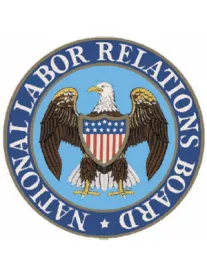Employers want their employees focused on work tasks while at work and not on personal business. Relatedly, employers, and many employees, want the work environment to be free from co-worker solicitations, regardless of topic. To achieve these goals, some employers may seek to implement policies that broadly prohibit co-worker solicitations and the conduct of personal business in the work place.
While seemingly innocuous, these policies have received increased scrutiny from the National Labor Relations Board (“NLRB”). Employers should keep several tips in mind when drafting employee solicitation policies.
The NLRB was formed to administer and enforce the National Labor Relations Act (“NLRA”). The NLRA generally defines the rights of employees to organize, join or assist labor organizations, to bargain collectively, and to engage in other concerted activities for the purpose of collective bargaining or other mutual aid or protection such as wages, hours, and working conditions. The NLRA provides that employers may not interfere with, restrain, or coerce employees in the exercise of their NLRA rights.
Over the past few years, the NLRB has been increasingly focused on how certain policies may have the potential to “chill” employees’ protected exercise of NLRA rights. Here are some tips to ensure employer policies do not potentially chill employees’ protected rights:
-
Be Precise. Be specific about the types of solicitation or personal business that is prohibited. Ensure the items that are prohibited are not protected by the NLRA. Even if you do not intend to restrict employees’ rights to engage in protected activities, over broad policies may be seen as “chilling,” and thereby impermissible.
-
Timing is Critical. Limit carefully tailored non-solicitation or personal business prohibitions to working time. Policies that arguably prohibit activity “while at work” or during “scheduled working hours” may violate the NLRA because those phrases may cover time when the employee is exercising protected rights at the employer’s location, but not actually working, including during lunch, breaks, and before and after “on-the-the-clock” work.
-
Be Consistent and Non-Discriminatory. If an employer permits employees to talk about non-work-related matters during work time, then policies should not prohibit discussions between employees about NLRA-protected rights during work time.
-
Location Can Matter. If policies have some type of prohibition against the distribution or posting of materials in certain areas of a facility, then this prohibition only should apply to work areas. If an area is a non-work area or is a mixed work/non-work area, a general prohibition against the distribution and posting of materials in these areas may be unlawful, absent some special circumstance related to the interference with work or equipment.
Despite employers’ best intentions, an over broad policy can unlawfully chill employees’ rights to engage in protected concerted activity. Careful drafting of handbook policies related to other business and solicitation may defrost these policies, making them permissible. Policies must be narrowly tailored so that there is no doubt that employees are allowed to communicate about wages, hours, and other working conditions and union and collective bargaining during non-working times. Given the particularity of prose needed for such policies, employers should have their handbooks reviewed and updated by legal counsel on a regular basis.




 />i
/>i

